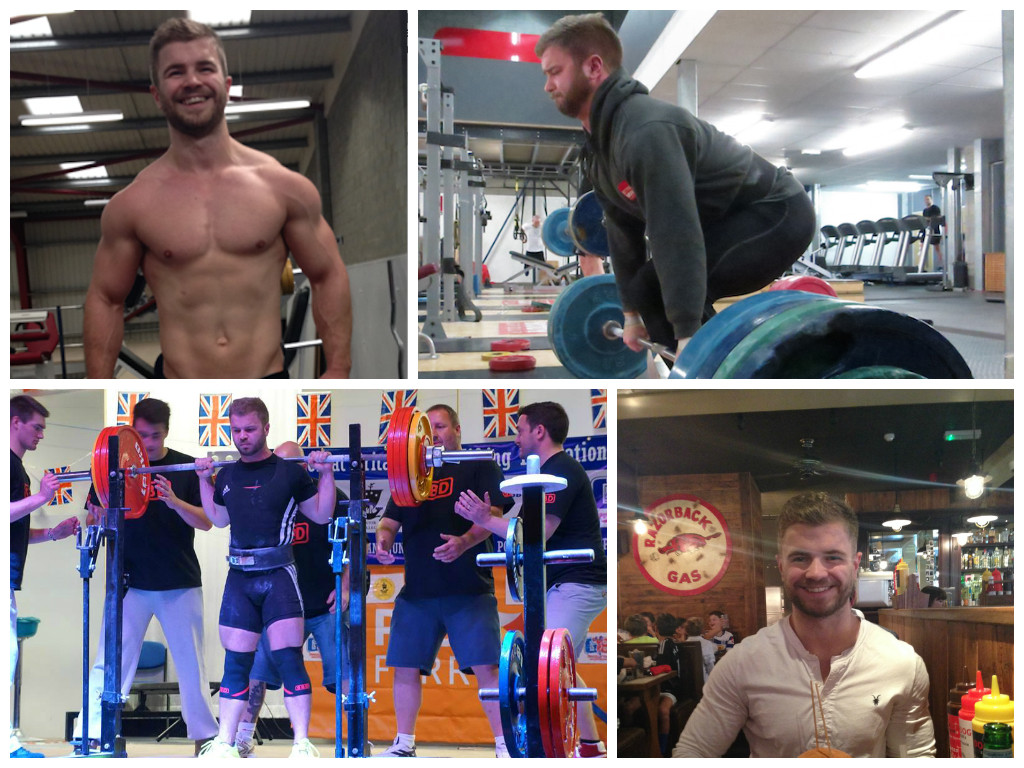Battling the Winter Blues – Seasonal Affective Disorder
The long, warm, lazy evenings of the summer are a very distant memory, and whilst autumn is a beautiful time of year, we can’t help but notice the days are getting shorter.
You wake up in the dark and come home in the dark, feeling like you never see the sun.

Most of us know that familiar feeling that comes of it: no energy, little motivation, trouble sleeping and waking up.
Some of us have even more serious problems as a result. Feelings of severe depression, worthlessness and even suicidal thoughts are all reported side effects of Seasonal Affective Disorder, or SAD for short.
There was some initial skepticism among experts over the validity of SAD being a real disorder but it is now recognised as a type of ‘real’ depression with a seasonal pattern.
It is more common in: females; younger people; those with a family history of depression; those who already have depression (sometimes it worsens with changes in seasons) and those who live far from the equator. Interestingly, men are much less likely to seek help when they have depression, therefore it might be that SAD is more commonly REPORTED in females. The symptoms for men are often worryingly more serious than for females, so it highlights the importance of us gents seeking help when we experience depression. If you are suffering from depression there are some very helpful resources here and here.
Whilst the exact causes are unknown, there are a few factors that might be at play for contributing to SAD:
The Hypothalamus
The hypothalamus (a gland in our brain) controls our mood, sleep and appetite. Its activity increases near dawn and slows down near dusk, controlling wakefulness and sleepiness. The hypothalamus governs our circadian rhythm, as explained below.
Changes to our circadian rhythm
Our circadian rhythm is the collective term for the processes that our body goes through over a 24 hour cycle. Governance of this cycle is affected by exposure to light, which of course is often lacking at this time of year, thus disrupting our body’s internal clock. When there is plenty of sunlight, the hypothalamus slows its activity, promoting wakefulness. It does this partly by the release of serotonin.
At this time of the year, due to the lack of sunlight, the exact opposite happens and serotonin levels drop, hampering neural processes and transmissions that can lead to the symptoms associated with SAD.
When we are exposed to sunlight, the eye triggers an impulse into the hypothalamus which then communicates with the pineal gland (another gland in our brain) telling it to produce less melatonin. Melatonin is a hormone that makes us feel sleepy. In the winter months, when there’s less sunlight, then melatonin production is increased, thus potentially making us feel lethargic.
Prevention and Treatment
It first needs to be stated that if your symptoms are severe please seek medical help. It’s beyond the scope of the information here to treat these kinds of symptoms, so make sure to see a doctor or other medical professional.
Exercise
Try and spend more time outside, even if it is not sunny. You are still exposed to outdoor, natural light which may help to ease your symptoms. Try and get outside for your lunch hour or take meetings with people outside for a walk. This will kill two birds with one stone, as regular exercise also helps reduce symptoms of depression, as well as preventing it from happening outright.
Any exercise that you enjoy will work well, with the recommended amount being 2 hours and 30 minutes per week AT LEAST. In our experience many make the mistake of taking up something they do not enjoy, making their efforts short lived, as they will not be motivated to continue! Do not feel like you are limited to just tying up your trainers and pounding the pavement on a run, or joining a gym… try looking on Sport England’s website HERE for some different ideas, many of them with a social element too, which may also help with some symptoms of depression.
Light Therapy/Dawn Simulation
I myself used to experience some symptoms of SAD, namely difficulty waking up in the mornings. I purchased myself a ‘Lumie Bodyclock Starter 30‘. The Lumie simulates a sunrise, waking you up gently, rather than a harsh sounding iPhone alarm in the pitch black! You set the time you need to wake up at and 20 minutes before, it initiates a gradual increase in light, up until the alarm time at which it lets off an audible alarm. I found myself waking up about 5 minutes before the alarm was due to go off, with much more morning energy and motivation than I previously had at this time of year. There is also a great sunset function that I personally find really helps me relax and get off to sleep.
Technology like the Lumie also has a decent body of research to back it up. In a 2005 paper in the American Journal of Psychiatry titled The Efficacy of Light Therapy in the Treatment of Mood Disorders: A Review and Meta-Analysis of the Evidence by Golden et al. state that
“This analysis of randomized, controlled trials suggests that … dawn simulation for seasonal affective disorder … (is) efficacious, with effect sizes similar to those in most antidepressant pharmacotherapy trials.”
My only gripe with the Lumie, is that on the rare occasion that I do sleep all the way through to the audible alarm going off, the noise is absolutely offensive! Apparently, I am not alone with a few reviews of the product saying the same. Baring this in mind, there is also a more recent model of the Lumie with customisable alarm sounds and white noise function, to help you drown out any noises when you’re trying to get off to sleep.
Nutrition
There has unfortunately not been much research conducted on the role of diet in treating or preventing depression. However, depression and cardiovascular diseases (e.g. metabolic syndrome and obesity) share many of the same markers and risk factors, such as increases in inflammatory processes. This information is useful to us as dietary strategies have been found to help those with cardiovascular disease, so perhaps the effectiveness can be extended to those with depression.
Omega 3 intake has evidence of this, with intakes of between 1 and 2.5g of Omega 3 showing reductions in measurements of depression, anxiety and inflammation. When picking an Omega 3 supplement for this purpose, it seems that high levels of the compound eicosapentaenoic acid or EPA for short are what you want to look out for (the amount is usually very clearly stated on the back of the bottle) with dosages of this seemingly effective at ~2000mg of EPA.
Olive oil also seems to have very similar effects to fish oil in reducing inflammatory processes, and its intake may also help uptake of serotonin. Olive oil is also of course abundant in the Mediterranean diet (high levels of fish, unprocessed grains, olive oil, fruits and vegetables), which itself also seems to be effective at preventing depression or is a predictor in risk of depression. This is useful information as a lot of the research points out that it is important that diets as a whole are examined rather than single nutrients, as the examined effects whole diets take into account the complexities of different nutrients interfering with each other. A typical Western diet on the other hand, one that is high in fried foods, processed meats, refined grains has been shown to increase inflammatory markers associated with cardiovascular diseases so it is perhaps not unreasonable to think it may also adversely affect symptoms of depression.
Summary
- Seasonal Affective Disorder, or SAD is a type of depression that may be worsened due to changes in the seasons
- It is more commonly reported in females than males, but this doesn’t necessarily mean it affects more females than men. Men are less likely to seek help for depression.
- SAD is thought to be caused by changes to the circadian rhythm due to less daylight. This in turn drops levels of serotonin and increases levels of melatonin making us feel lethargic and unmotivated.
- If your symptoms are severe, seek medical help.
- Exercise is a great preventative and treatment measure. We should all be aiming for at LEAST 2 hours and 30 minutes per week of some form of exercise we enjoy. Try and do a sport that has a social element to it.
- Dawn simulation devices such as a Lumie can be a great way to reduce symptoms of SAD by waking you up gently to a gradually increasing light rather than to harsh noises in the dark.
- Omega 3 intake (~2000mg EPA) and olive oil intake has been associated in reducing inflammation and other markers of depression and anxiety.
- Those who eat a Mediterranean diet may have a lower risk of having depression as well as it being a preventer.
- The Western diet may yield the exact opposite due to associated increases in inflammatory processes.
About The Author
 James Blanchard (JB) is a personal trainer and nutrition consultant, working with clients both online and on an in person basis from the Better Body Group in Sevenoaks, UK.
James Blanchard (JB) is a personal trainer and nutrition consultant, working with clients both online and on an in person basis from the Better Body Group in Sevenoaks, UK.
He specialises in getting hard working, busy people lean, strong and confident whilst still enabling them to be social and enjoying life’s pleasures. Ya know, like beer, pizza and stuff.
Taking a scientific and evidence based approach, he designs his clients’ training and nutrition programs in the most effective, time efficient and easy to stick to way possible.
He has a weird obsession with picking heavy stuff up and putting it down again. He channels this through competing in powerlifting, where he currently holding a regional record in the squat. He’s also tried his hand at various other sports, including rugby, bobskeleton and athletics.
To get your hands on some of JB’s best work for free, you can join over a 1000 others and get his Get Shredded Toolkit, containing everything you need to get lean: “5 Rules to Get Shredded eBook”, a whole body training program, a completely personalised diet and comprehensive how-to guide here.
